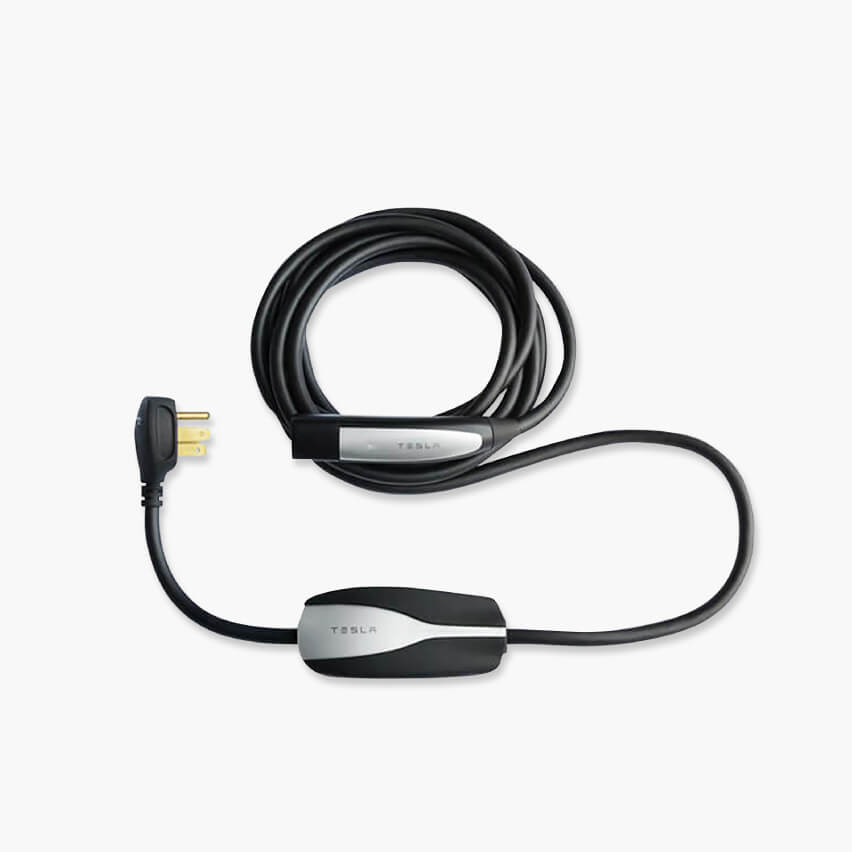Mrbrock
Active Member
I needed the length as well so went with the Gen2. It’s been great. Got a good deal on a “signed” one...
You can install our site as a web app on your iOS device by utilizing the Add to Home Screen feature in Safari. Please see this thread for more details on this.
Note: This feature may not be available in some browsers.
1) Tesla does not recommend using an extension cord with the Tesla Mobile Connector (or any other brand of EVSE with a plug) to charge the Tesla vehicle. For occasional use such as camping, renting a beach house etc. you could get away with using a high quality extension cord of sufficient gauge, as short possible and still reach the receptacle.Thank you for all of the feedback. As a first time EV owner, I really appreciate the experience available from the forum. Speed of charging is not a major factor because I will have 10 hours of charge every night + access to local super charger when needed. So. this is what I'm considering.
1. Use my existing 10-30 line with a 25' NEMA extension cable that runs from the laundry room to the garage and the Tesla 10-30 adapter with mobile charge cord from Tesla (is this safe?): $100
2. Have an electrician install a 14-50 line much closer to the car and use the Tesla mobile charge cord: $1200
3. Have an electrician install the requisite line to power a Tesla wall connector: $2000
Thoughts?
Thanks,
Steve
Thank you for all of the feedback. As a first time EV owner, I really appreciate the experience available from the forum. Speed of charging is not a major factor because I will have 10 hours of charge every night + access to local super charger when needed. So. this is what I'm considering.
1. Use my existing 10-30 line with a 25' NEMA extension cable that runs from the laundry room to the garage and the Tesla 10-30 adapter with mobile charge cord from Tesla (is this safe?): $100
2. Have an electrician install a 14-50 line much closer to the car and use the Tesla mobile charge cord: $1200
3. Have an electrician install the requisite line to power a Tesla wall connector: $2000
Thoughts?
Thanks,
Steve
Do you get the $500 rebate if you self install? I think so states require the installation be through a licensed electrician with a permit. Whatever that cost is would have to be weighed against your extra 8A of charging speed if you switch to the HPWC.@stevetothink I had an electrician run a line from my panel in my basement on the opposite side of the house, to a NEMA 14-50 outlet in my garage - about a 40 foot run. I have no idea what sort of cable he used; he knew it was for charging a Tesla and had done a bunch of them. He charged me $800 plus the $50 cost of a permit. Central NJ. I may decide to get the Tesla Wall connector but only if NJ does a planned (up to) $500 rebate for it. Otherwise this gives me plenty of juice charging off-peak.
Not sure, as the rebate hasn't been approved, just announced at this point. IF it comes, it won't be until after new fiscal year starts on 7/1. But I would probably have an electrician do it, unless it just plugs into my existing outlet (NEMA 14-50). Frankly, if such a thing exists, I'd rather have that as I'm moving in 4 years and would like to just bring the EVSE with me.Do you get the $500 rebate if you self install? I think so states require the installation be through a licensed electrician with a permit. Whatever that cost is would have to be weighed against your extra 8A of charging speed if you switch to the HPWC.

Indeed. I added a cord and plugged my HPWC into the 6-50 outlet I originally installed.You can wire a plug into your HPWC but it’s not recommended. If you do typical handiwork around the house you would be able to convert your 14-50 to accept the HPWC. The wires that connector to the 14-50 receptacle would be fed into the HPWC and attached to it. If that is beyond your comfort level it should take an hour or less of an electricians time.
Otherwise you’d be looking at the corded mobile connector which has a built in 14-50 and allows up to 40A charging.

Corded Mobile Connector
The Corded Mobile Connector features a NEMA 14-50 plug and improved charging speeds in comparison to the Mobile Connector with NEMA 5-15 Adapter. Includes: 1x NEMA 14-50 Corded Mobile Connector - 20’ cable 1x storage bag Corded Mobile Connector Manual Note: The Corded Mobile Connector is...shop.tesla.com


